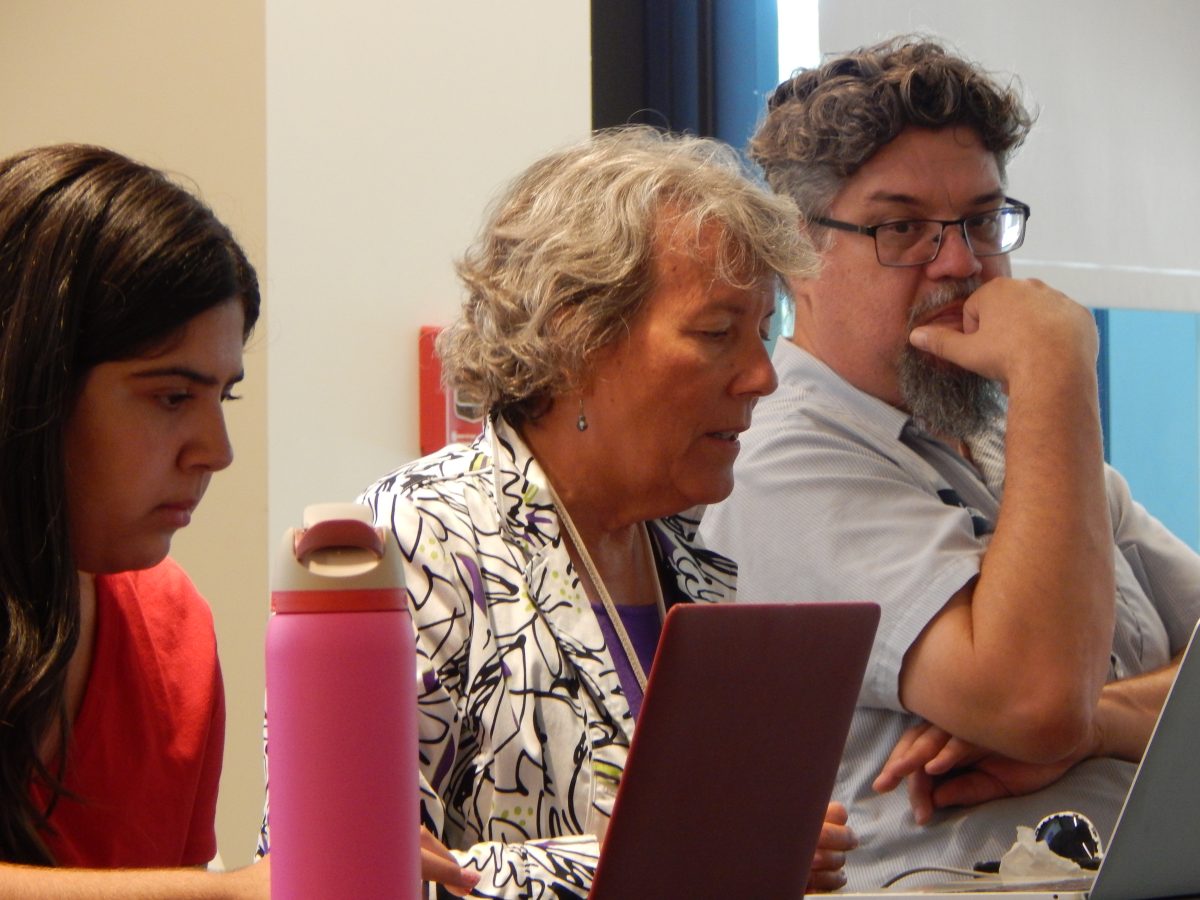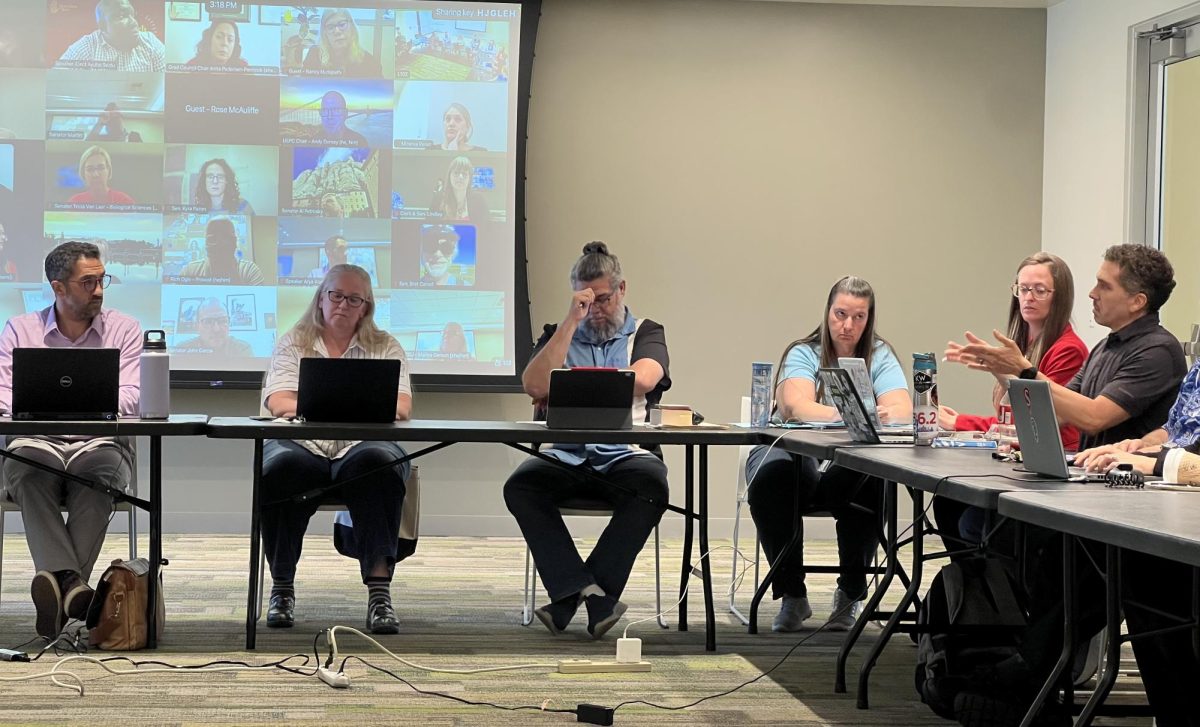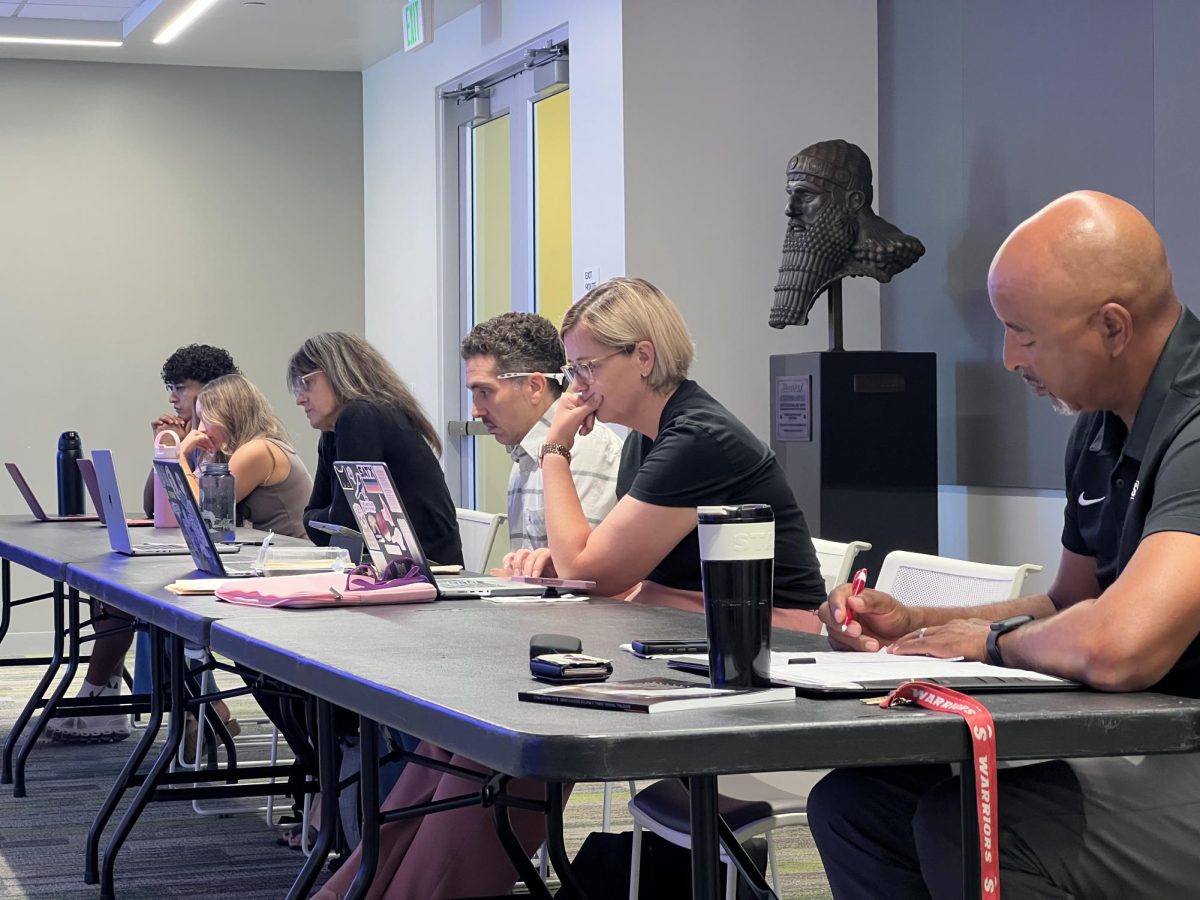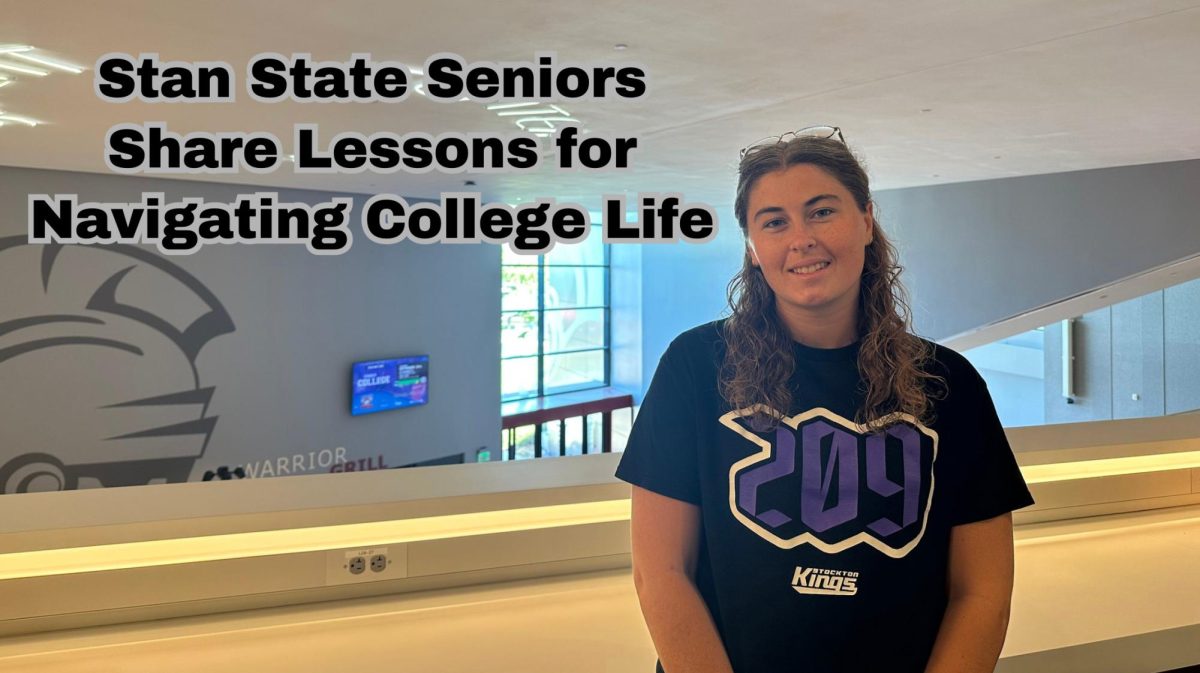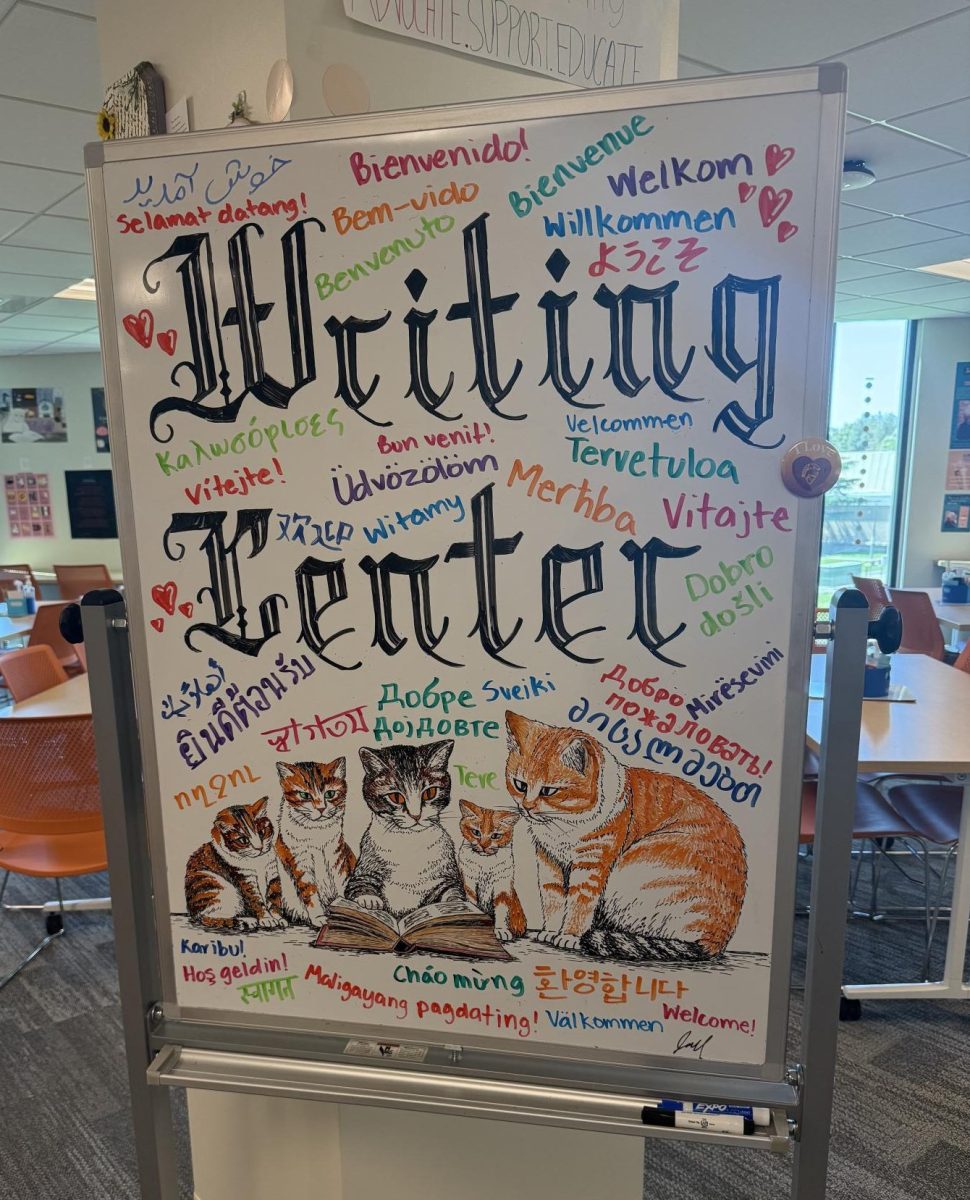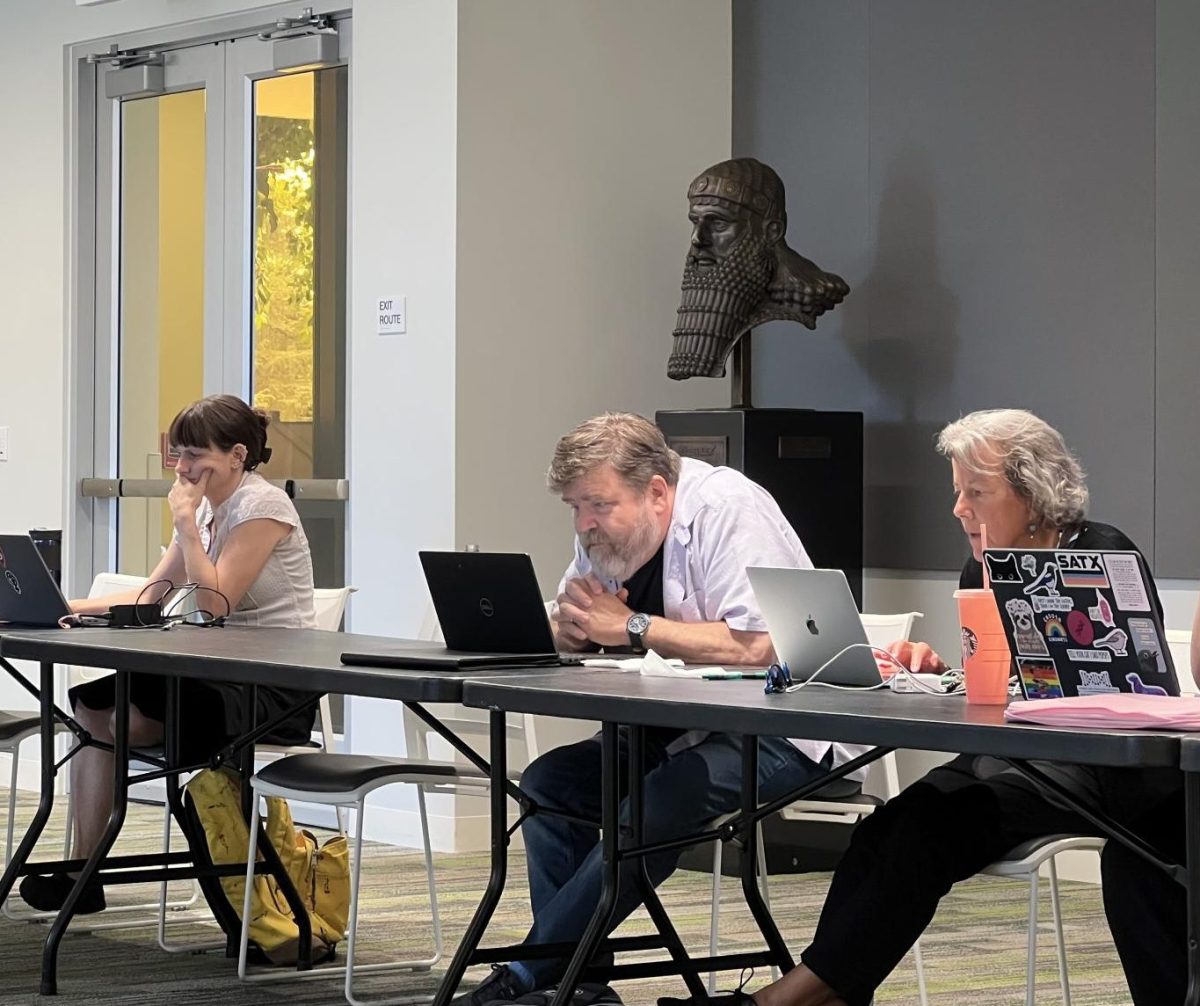Today’s Academic Senate meeting saw the body come together to discuss and agree upon the standing rules with which the Senate operates and where its authority and power comes from. It also saw ASI and the CFA report on their agenda for the semester and early issues they’ve noticed that need to be addressed.
ASI Sets Agenda, Promotes Weeks of Welcome, and Requests Outreach to Fill Vacant Positions
ASI President Miranda Gonzalez reported to the Senate today on what issues they’re going to focus on early in this semester.
These issues include implementing University Hour—an hour in the day where no classes are held focused on studying, recreation, and socialization, holding conversations around student engagement, and finding ways to increase enrollment.
ASI also reminded the Senate that they are hosting a number of events as part of their Weeks of Welcome at both the Turlock and Stockton campuses through September 28th. These events include a Student Center Open House, Archery Tag, and a showing of Inside Out 2.
A calendar of Weeks of Welcome events can be found here.
President Gonzalez also put out a call to fill two vacancies on their Board of Directors. These vacant seats include a Director for College of Education, Kinesiology, and Social Work and a Director for Graduate Students.
The form to apply as a director to fill these vacancies can be found here.
CFA Reports on Recent Issues Experienced by Department Chairs
CFA Chapter President Dave Colnic reported to the Senate on a meeting co-hosted by CFA which brought all of the university’s department chairs together to discuss their recent concerns.
These concerns included the administration making a number of changes without or with little consultation with the department chairs. Some of these changes include sudden changes to assigned time, staffing changes and reclassification of staff, reduction in their summer pay compared to the year prior, and the sudden suspension of degree programs.
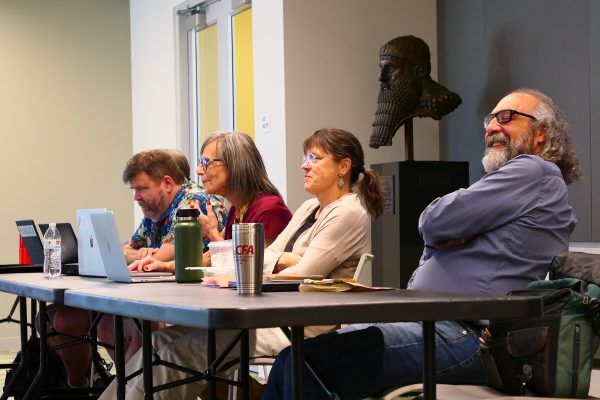
Colnic said the CFA aims to investigate these matters and to find ways to raise these grievances to the administration so that they are addressed.
Standing Rules of the Academic Senate Discussed and Approved
If you were ever curious about the fundamental operations of the Academic Senate, Senator Koni Stone presented a thorough explanation of the Senate’s standing rules and where their authority comes from. These standing rules required a 2/3rds majority of the Senate to consent to them so they could begin to operate this semester.
Stone explained that the university constitution delegates the responsibility of the General Faculty on matters of policy and advocacy to the Academic Senate.
However, vital policies, such as those made to the constitution or policies that implement major changes to university operations go to a referendum of the General Faculty, where the entire campus’ faculty body is able to vote on the matter.
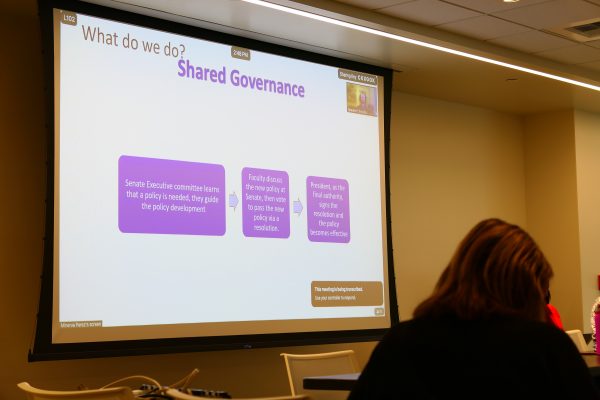
Stone continued to explain that whether a policy goes through a referendum or passes the Senate, the university president is the final authority on whether or not that policy is signed and put into effect.
Stone then elaborated on the operations of the Academic Senate. The Academic Senate is headed by the Senate Executive Committee (SEC) which then delegates the creation of policy to a number of committees. These policies come to the Senate floor as resolutions, which the body reads twice before voting.
The first reading of a resolution is where Senators are able to give feedback for revisions to be made to the item after being allowed to read it and being given an oral explanation of its purpose and intent by the Senator who brings it to the floor.
The second reading sees the resolution return with changes based on the feedback of the Senate. After another round of discussion, the item is then voted on, with a simple majority being required for the policy to pass, where it then goes to the university president to sign.
If the president decides not to sign the resolution, Stone explains, then the president must give a written explanation on their decision. This feedback can then be taken into consideration and the policy can be revised and go through this process an indefinite number of times.
Senators can also move to make amendments or amend an amendment to a resolution’s text. These amendments require a simple majority to pass, however, they only go to a vote if any Senators vocally object to the amendment’s inclusion. Otherwise, amendments recommended in a way the body sees as “friendly” can be added to the document without a vote.
First reading items can also be expedited to a second reading if a Senator calls for a vote to waive the rules. However, Stone explained that this process is rare, only occurring in the case of tight deadlines or if there is a consensus that the policy’s implementation is urgent.
After a few minor tweaks to matters of protocol, the Senate unanimously agreed to operate under these standing rules.


